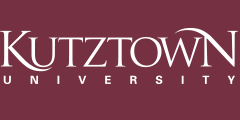Blinded by Whiteness: Middle-Class White Teachers’ Explorations of Identity and Deficit Discourse at the Intersection of Race, Class, and Perceived Ability
Abstract
A legacy of placing children of color and poverty at the center of the “problem” of race and class in education has left us in a holding pattern marked by a prevailing deficit discourse and problematizing of students. Scholars agree that the predominantly white, middle class, female teaching force who occupy US public school classrooms embody and perpetuate these inequitable educational practices endemic within this system. In this study, a small population of White, middle class teachers--including the researcher--organized within a Professional Learning Community (PLC) explored identity and deficit discourse at the intersection of race, class, and perceived ability. Grounded in Feminist Standpoint Theory, Social Identity Theory, Critical Whiteness Theory, and Transformative Learning Theory and employing a critical-ideological stance, the investigation sought to understand how participation in a professional learning group impacted teachers’ perceptions of themselves and their students. To that end, meeting transcripts, interviews with PLC participants, artifacts, reflective journals, memos, and classroom observations provided data that was examined through a heuristic phenomenological lens. Research findings indicate that participation in a PLC focused on identity and deficit discourse in the classroom results in White, middle-class teachers’ increased awareness of privilege and power disparities between teachers and students as well as increased sensitivity to the mindsets that inform their discourse to and about students. Further, evidence suggests that PLCs can create safe spaces which foster deep professional relationships, vulnerability, and sustained self- and group-reflection are appropriate and effective sites for engaging identity work. Implications of these findings at all levels of the educational system--classrooms, school districts, and broader policy issues--are presented with an eye toward affecting sustainable change. Finally, study limitations and opportunities for further research are considered and framed.


